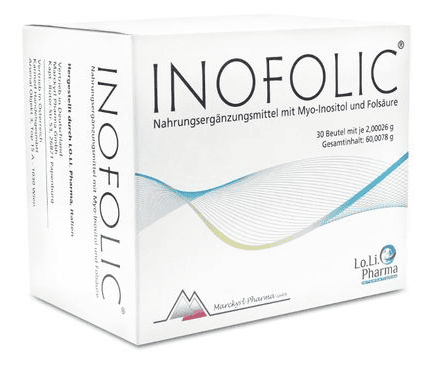This is an automatically translated article.
Polycystic ovary syndrome causes endocrine disorders and insulin resistance, which is the cause of weight gain. To lose weight, patients need to maintain the use of medication and make healthy lifestyle changes.
1. What is Polycystic Ovarian Syndrome (PCOS)?
Polycystic ovary syndrome (PCOS) is a common endocrine disorder in women of reproductive age. Women with PCOS have irregular periods, excess androgens, and polycystic ovaries that make it difficult to get pregnant. Polycystic ovaries are the main symptom of the disease with ultrasound imaging of small cysts along the outer edge of the ovary.
Doctors diagnose polycystic ovary syndrome based on findings from medical history, physical and pelvic exam, and pelvic ultrasound. Women diagnosed with PCOS also undergo blood tests that measure the levels of certain hormones to rule out potential causes of menstrual irregularities or an excess of androgens.

Hội chứng buồng trứng đa nang là rối loạn nội tiết phổ biến ở phụ nữ độ tuổi sinh sản
2. Why does polycystic ovary syndrome cause weight gain?
Polycystic ovary syndrome makes it difficult to absorb insulin, also known as insulin resistance. This causes high levels of insulin and glucose to build up in the blood.
High insulin build-up in the blood increases the production of male androgens. Androgen produced in high concentrations in women can cause excessive hair growth, acne, irregular periods, and even weight gain.
For people with polycystic ovary syndrome, weight is mainly concentrated in the abdomen. So in these people, instead of a pear-shaped body, they have an apple-shaped body.
Belly fat is the most dangerous type of fat because it increases the risk of diseases such as heart disease, obesity, etc. Therefore, people with polycystic ovary syndrome need to keep an appropriate weight to maintain health.
3. Harmful effects of weight gain in polycystic ovary syndrome
Weight gain from polycystic ovary syndrome is often associated with weight problems and insulin resistance. Specifically:
Type 2 diabetes High cholesterol High blood pressure

Tăng cân do hội chứng buồng trứng đa nang có thể dẫn tới huyết áp cao
Sleep apnea Dry uterine lining Endometrial cancer In addition, weight gain can trigger more advanced PCOS symptoms, such as irregular periods and acne.
4. How to lose weight if you have polycystic ovary syndrome?
Losing weight at 10% from baseline in women with PCOS can help return to normal menstrual cycles and reduce some other symptoms. Weight loss also improves insulin sensitivity, which reduces the risk of diabetes, cardiovascular disease, and other PCOS complications.
There are 2 main methods of weight loss for PCOS patients: medication and lifestyle changes:
4.1 Medications Certain medications approved for PCOS may be effective weight loss , including:
Birth control pills Anti-androgen and Metformin (Glucophage) to block the effects of male hormones. The diabetes drug Metformin helps the body use insulin more efficiently as well as reduces testosterone production.

Thuốc tránh thai cũng có thể có tác dụng giảm cân
4.2 Lifestyle changes In addition to medication, a healthy lifestyle and habits are also believed to help people with polycystic ovary syndrome:
High-fiber, low-sugar diet: Eat more fruits, vegetables and grains ; Avoid processed and high-fat foods to control blood sugar. If you're having trouble eating healthy, you should seek the help of a dietitian. Divided into 4-6 small meals instead of 3 main meals a day will help control blood sugar more effectively. Exercise for at least 30 minutes a day most days of the week. Have regular health check-ups to monitor cholesterol levels and blood pressure. Quit smoking if you are a regular smoker. Weight gain due to polycystic ovary syndrome is not only a cosmetic problem, but the disease can affect fertility, hormonal disorders, and menstrual irregularities. Therefore, overweight patients maintain an appropriate weight as well as apply a scientific and healthy diet.
To ensure health as well as minimize complications caused by polycystic ovary syndrome, women should go for regular gynecological health checks at trusted specialized medical facilities to soon detect disease and provide appropriate treatment.
Vinmec International General Hospital is a prestigious gynecological treatment address with modern equipment and a team of highly skilled and professional doctors. Currently, Vinmec has a basic Gynecological Examination and Screening Package, helping customers to detect early gynecological diseases and complications caused by polycystic ovaries such as weight gain, irregular menstruation. ,... From there, a treatment plan will be given to ensure the health and fertility of customers in the future.
To register for examination and treatment at Vinmec International General Hospital, you can contact Vinmec Health System nationwide, or register online HERE.
References: webmd.com, medscape.com, obesityaction.org













